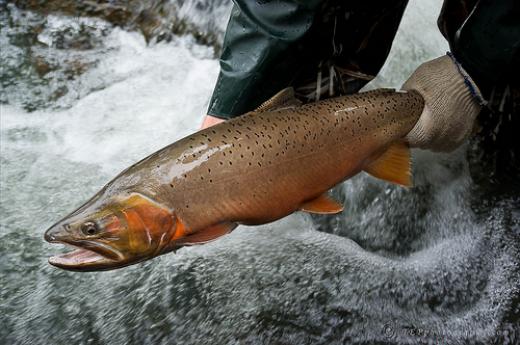Bear River
Goals
The Bear River in Idaho, Wyoming, and Utah is the longest river in the western hemisphere that doesn’t reach the ocean—traveling a tortuous path over 500 miles from its headwaters in the Uinta Mountains before eventually emptying into the Great Salt Lake. And the fish are as unique as the river. Bonneville cutthroats are the only trout that are native to the drainage, and they migrate throughout it. That behavior allows them to use different habitats at different times of the year; as a result, they get really big. In fact, The Bear offers the best chance anywhere for an angler to hook into a three-to five-pound native ‘Bonnie’. To ensure that this unique opportunity doesn’t disappear, TU launched the Bear River Home Rivers Initiative in 2005 to restore habitat, reconnect tributaries and protect the rare migratory populations of these fish.
Tactics
TU has completed dozens of restoration projects throughout the Bear River watershed since 2004. Most of these projects have involved restoring fish passage - allowing fish to move past barriers and connecting them to the habitat they need to survive and flourish. Bonneville cutthroat trout are now able to move upstream and spawn in many tributaries of the Bear River that were previously impassable. Fish screens now also allow fish to now move downstream without the threat of being captured and killed in irrigation canals. In addition, these projects benefit the agricultural users of the land and water by improving their infrastructure and allowing them to more efficiently and effectively manage irrigation water.
Victories
In the Bear River, TU has put in place 30 fish-passage projects that have restored access to hundreds of miles of river and stream habitat for Bonneville cutthroat trout. These and future projects will help to ensure that Bonneville cutthroat trout persist and thrive in the Bear River well into the future.
Staff Contact
Jim DeRito, jderito@tu.org
Author of this Page
Jim DeRito



